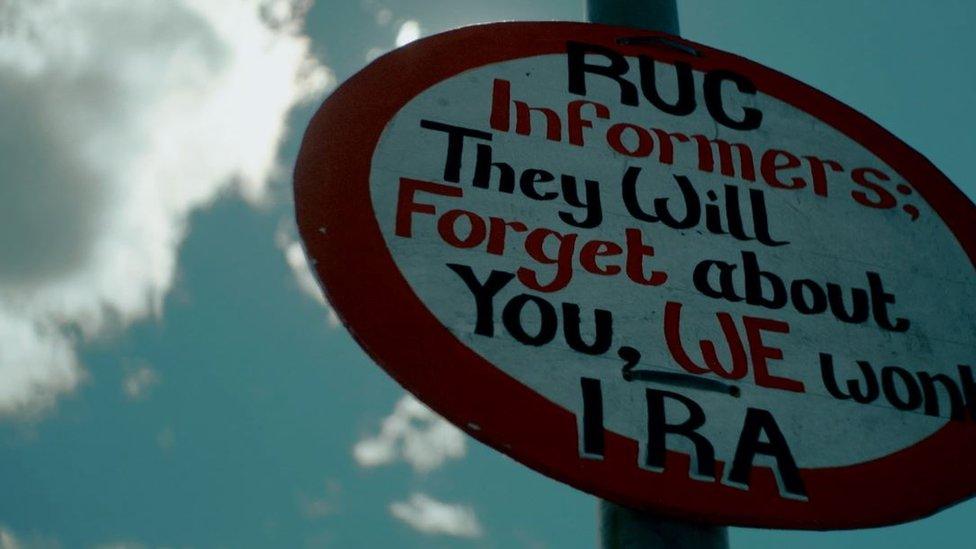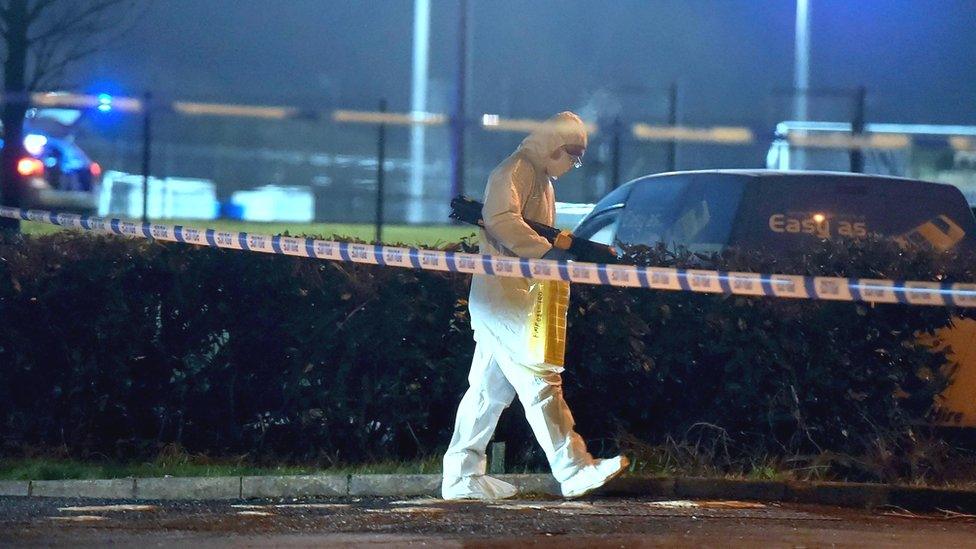Police warn Sinn Féin of 'dissident republican attack'
- Published

Michelle O'Neill has been the vice-president of Sinn Féin since 2018
Sinn Féin's deputy leader has said police have told her dissident republicans are planning an attack on herself and party colleague Gerry Kelly.
Michelle O'Neill is NI's deputy first minister, and Mr Kelly is the party's policing spokesperson.
She said Sinn Féin had received the warning from the PSNI on Tuesday.
Ms O'Neill said her party would not be deterred, following its success in the Irish general election.
On Monday, Sinn Féin celebrated its best-ever electoral result, winning 37 seats out of 160 and taking the highest share of first preference votes.
"The backdrop (of the threats) is that 500,000 people have voted for Sinn Féin and voted for change in recent elections," she said.
"These people have nothing to offer society, nothing but intent to attack myself, and Gerry and our families.
"Dissident republicans have no strategy, no plan and no progress towards Irish unity. It also comes at a time with a backdrop where we have never been closer to Irish unity.
"I will not be deterred and Sinn Féin will not be deterred."

DUP leader and First Minister Arlene Foster condemned those responsible, saying: "There is no place for threats or violence.
"We live in a democracy. The ballot box is how we effect change, not through the bomb or bullet.
"Whether in 1970, 1980, 1990 or 2020, violence from every hue must be condemned."
Ms O'Neill said she could not comment further on the nature of the intelligence the PSNI had received, but said she and Mr Kelly had to take measures to protect their families.
She and Mr Kelly attended a PSNI recruitment event in Belfast last week, which was described by the Chief Constable Simon Byrne as a positive step forward, regarding a drive to encourage more Catholics to join the force.
Last year, there were attempted bomb attacks by dissident republicans on police in Belfast, Craigavon and Fermanagh.
The two dissident republican groups involved are the New IRA and the Continuity IRA.
Both groups are said to want to demonstrate they continue to exist and that they remain capable of violence, partly as a means to attract recruits - not just young individuals, but those from an older generation.
They see themselves as continuing physical force republicanism against British rule.
- Published14 August 2023
